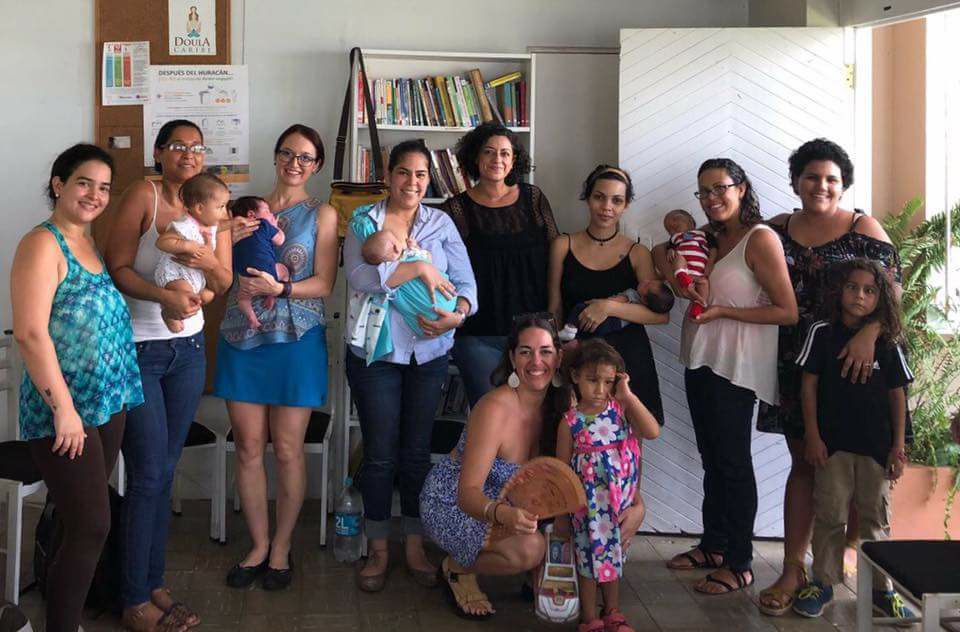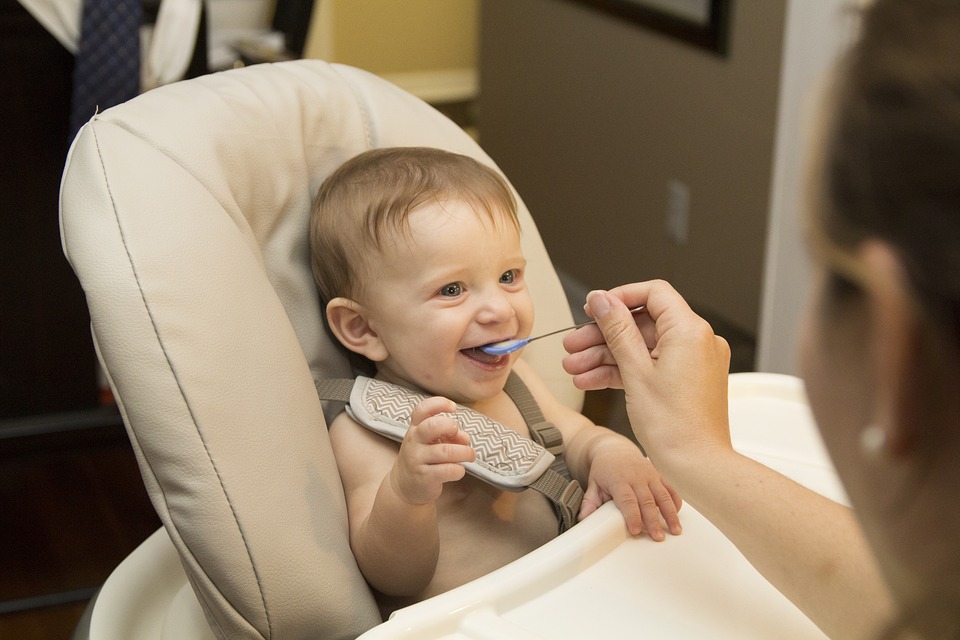Guest Post: Supporting New Mothers In The Wake Of Hurricane Maria
This fall, little did I know that my Island, Puerto Rico, would be threatened by two hurricanes. When Hurricane Irma struck, we fortunately managed to avoid a full impact and my community only went without electricity for four days, with no interruption in telecommunications. But then two weeks later, the apocalypse would come to my Island, when we were assaulted without mercy by a Category 5 Hurricane named Maria.
 The aftermath of this storm provides a snapshot of a meeting point between the developed and sub-developed world. Puerto Rico, a nation Island, is also a U.S. protectorate which theoretically has access to federal assistance programs. But the aftermath of Hurricane Maria has been characterized by fuel and food scarcity, rationing of basic necessities, slow restoration of utilities with less than 50% of residential customers with electricity and 40% without water, and an increase in disease—to name a few.
The aftermath of this storm provides a snapshot of a meeting point between the developed and sub-developed world. Puerto Rico, a nation Island, is also a U.S. protectorate which theoretically has access to federal assistance programs. But the aftermath of Hurricane Maria has been characterized by fuel and food scarcity, rationing of basic necessities, slow restoration of utilities with less than 50% of residential customers with electricity and 40% without water, and an increase in disease—to name a few.
Maria changed everything. And, as an International Board Certified Lactation Consultant (IBCLC) and former La Leche League leader, my dream of opening a community clinic focused on providing affordable breastfeeding support to low income families and training other lactation specialists was transformed.
Turning My Dream Into A Reality
As I looked at the utter devastation—trees and posts fallen on every street, no cell phone service, absence of foliage, roofs torn  from houses, mudslides, blocked roads, a lack of clean water, all while supplies were slow to be released—I was struck by the reality that my Island did not need a clinic at this time, but instead safe infant feeding support that could travel from community to community.
from houses, mudslides, blocked roads, a lack of clean water, all while supplies were slow to be released—I was struck by the reality that my Island did not need a clinic at this time, but instead safe infant feeding support that could travel from community to community.
That first week after Hurricane Maria struck, many formula-feeding families were desperately seeking milk and clean water for their babies. Breastmilk-feeding families were throwing their unfrozen stashes down the drain. Others were worried that their milk had dried up either from stress, being forced to spend 8+ hours away from their babies at home while standing in line for gasoline and relief, or failing to express milk when their baby couldn’t get a good latch and they didn’t know how to pump without electricity.
My eyes had previously been opened as we provided support for families affected by Hurricane Harvey, and now it was even more clear that the message about breastfeeding in emergencies needed to be broader and more inclusive of mixed-feeding and formula feeding families.
And so, Alimentación Segura Infantil (ASI) was born.
“This Way” or “Like That”
The word así in Spanish means “this way” or “like that.” At ASI, our goal is simple – to save lives with compassion. We do this by helping families safely feed their infants and young children during emergencies, and providing community-based trainings around the Island to anyone who is interested in the topic. The trainings are free of charge, provided each individual impacts 25 individuals before the 2018 hurricane season.
Right now, we are training 10 core group members—community leaders, human milk or formula feeding parents, birth and lactation workers—to become experts at infant and young child feeding. Our goal is to reach at least 25 people with this training per month.
 As an IBCLC, I am also providing breastfeeding clinics in impacted communities. Although I work with any breastfeeding parent who needs support, I focus on reaching families with infants less than 10 days old, those who are feeding their babies a mix of breastmilk and formula, and those who have weaned and wish to re-lactate. During my clinics I focus on a variety of topics including issues that are specific to our new world with power outages, food scarcity, contaminated water, and lack of accessibility.
As an IBCLC, I am also providing breastfeeding clinics in impacted communities. Although I work with any breastfeeding parent who needs support, I focus on reaching families with infants less than 10 days old, those who are feeding their babies a mix of breastmilk and formula, and those who have weaned and wish to re-lactate. During my clinics I focus on a variety of topics including issues that are specific to our new world with power outages, food scarcity, contaminated water, and lack of accessibility.
While we are fledgling and in our first 1,000 days ourselves, we work hard to make this movement grow.
But most importantly, I want everyone who’s reading this to remember that what we are currently experiencing in Puerto Rico is occurring in other communities around the world and could someday happen in your own.
Así somos. That’s how we are.
Lourdes Santaballa is an IBCLC, Infant and Young Child Feeding Specialist, and is completing a Master’s Degree in Clinical Integrative Nutrition. A former La Leche League leader, she is a single parent to two school aged children, and lives in Dorado, Puerto Rico where she co-parents cooperatively with her ex-spouse. She serves as the chair of the Lactation Equity Action Committee, committed to equity in the lactation fields at the international level. A community activist, she believes strongly that babies will thrive if disparities are eliminated, communities are listened to, and community-based leaders are given the tools to become certified educators, counselors and consultants. She has more than 20 years of experience in community organizing, activism, and nonprofit management. Following Hurricane Maria, Lourdes founded ASI Alimentación Segura Infantil and is committed to overcoming oppression and transforming communities.
To donate to ASI Alimentación Segura Infantil, click here.


